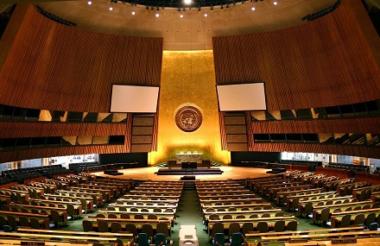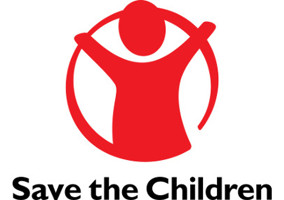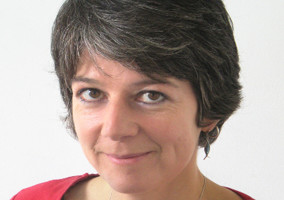Staff at major aid charities in the UK were identified as exchanging sex for food by a UN inquiry as far back as 2001, according to a story in today’s Times.
The Times claims to have seen a copy of an 84-page document which says that there were more than 40 aid organisations “whose workers are alleged to be in sexually exploitative relationships with refugee children”.
The document was produced by research teams working in West Africa for Save the Children and the United Nations High Commissioner for Refugees (UNHCR). The research was conducted in 2001 and the report was published in 2002.
The Times claims that report was "wasted" and that charities have not made changes in response.
"The results have been little short of disastrous," a leader in the newspaper said. "A report wasted, a pattern of criminal abuse that has gone unpunished and an international aid sector plunged into crisis years later because of behaviour that could and should have been stamped out."
A number of UK charities were named in the report, including the Red Cross, Médecins Sans Frontières, the International Rescue Committee, Care International and Save the Children itself.
One of several Times articles today is headlined Charity sex scandal: ‘In this community no one gets food without having sex first’. It claims that in aid camps in Guinea and Liberia, sexual abuse was so endemic that the only way for many refugee families to survive was to allow a teenage girl to be exploited.
Interviews in 2001 with 1,500 people produced 67 different complaints involving staff at 40 charities.
Report was covered at the time
The Times is the first newspaper to see the full report, as claimed on its front page today, but a summary report was published at the time.
The report had widespread coverage, and led to a UN resolution. Many charities developing improved safeguarding procedures, but in many cases action appears to have stalled.
The report was shared with charities to investigate by themselves. But only ten people were dismissed and no one was prosecuted. Charities say they took the report seriously but that it was difficult to identify individual perpetrators with the information provided.
The full report was concealed after intervention by Ruud Lubbers, then the high commissioner, who was himself dismissed over allegations of sexual exploitation in 2005.
Save the Children: 'We were shocked in 2001'
A Save the Children spokesman said it had improved its safeguarding and the number of incidents had risen from 31 in 2013 to 210 in 2017.
"We were shocked when our investigators uncovered sexual abuse by aid workers in 2001. The investigation found that far too little was being done to prevent and report abuse across the humanitarian sector.
"At the time Save the Children took immediate action against three individuals. We have since made sweeping changes. Every member of staff is now given mandatory child safeguarding training within a week of joining the organisation. We have established a dedicated global safeguarding team and 445 focal points for reporting concerns.
"Save the Children have a culture of zero tolerance for misconduct of any kind. Anyone found to be violating this policy is held to account."
Red Cross: 'It may not tell the whole story'
A spokesman for the International Federation of Red Cross and Red Crescent Societies said: "Over the past five years, IFRC has received a small number of complaints relating to staff misconduct. We are concerned that this may not tell the whole story. We know that sexual harassment, abuse and exploitation are often underreported, and that more needs to be done to address, prevent and punish such misconduct.
CARE International: 'People we serve must be safe from abuse'
A Care International spokeswoman said: "CARE believes that the people we serve must be safe from sexual harassment, abuse and exploitation of any kind. Reports like this have contributed to changes in the way that humanitarian programmes are delivered, measured and monitored.
"In 2002 CARE adopted the six principles outlined by the IASC working group on prevention and response to sexual exploitation and abuse. In 2003 the Humanitarian Accountability Partnership (HAP) was developed, so that member humanitarian agencies such as CARE are held to account."
International Rescue Committee: 'We released local workers'
An IRC spokeswoman said: “Since 2003 the IRC has had staff dedicated to addressing and preventing sexual harassment, exploitation and abuse. They have been supported by continued investment in systems and processes. The IRC now has a Code of Conduct, the IRC Way, which is compulsory training for all staff.
The IRC has clear policies on all forms of abuse and harassment and has strong global reporting guidelines in place, advising staff on how to report violations of these policies. All reports are followed up and may be investigated by the IRC’s Ethics and Compliance Unit.”
Bond: 'The sector must go further'
In a statement the umbrella body for the international development sector, Bond, said: "The events in 2002 in west Africa were shocking and shameful for the whole humanitarian and development sector. Women and children living in refugee camps who had already suffered so much should never have been in a situation where their vulnerability could be preyed upon. Important steps were taken by NGOs post 2002, however, the sector knows it needs to go much further to protect those they seek to help.
"All of the policies and processes in the world will not make the difference needed unless they are matched by a change in organisational culture and leadership. We must address the underlying issues of inequality and power imbalances which allow exploitation, abuse and harassment to take place – and this agenda needs to be owned and driven forwards by anyone who works for an NGO, but particularly those in leadership positions. The whole sector recognises this and is working together to put this into practice. NGOs must protect people from abuse, hold abusers to account and encourage those affected to come forward to report incidents."
|
Related articles












